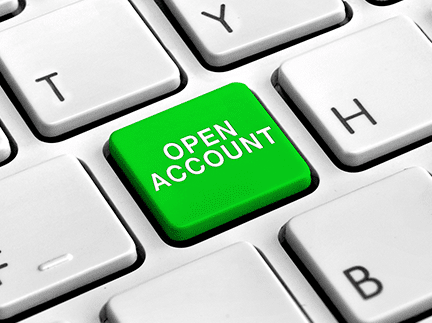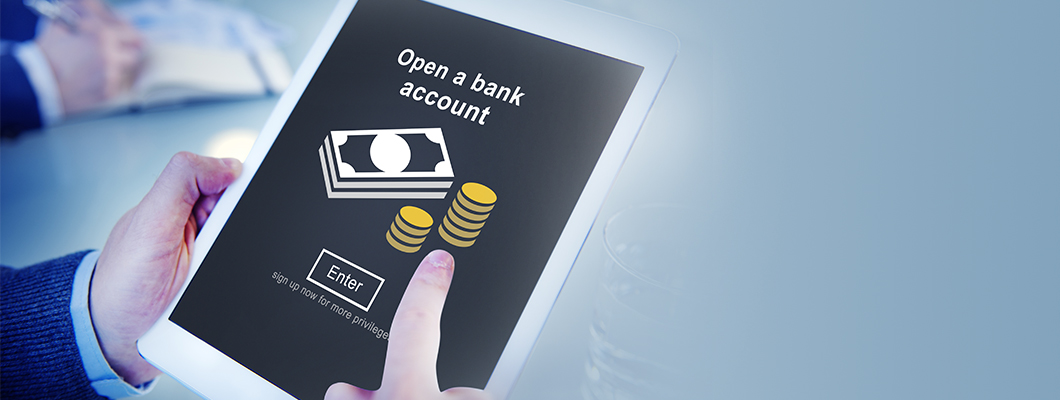Quick and Simple Bank Account Opening Tips for First-Time Applicants
Quick and Simple Bank Account Opening Tips for First-Time Applicants
Blog Article
Every Little Thing You Need to Know Before Opening a Checking Account: Necessary Insights
Opening a bank account is a significant financial decision that requires careful consideration of different factors. Prospective account holders must also evaluate the value of fees, access, and the bank's customer service track record.
Kinds Of Bank Accounts
When taking into consideration the diverse landscape of economic services, what sorts of checking account are available to satisfy numerous needs? The primary classifications of savings account consist of inspecting accounts, financial savings accounts, money market accounts, and certificates of deposit (CDs)
Examining accounts are developed for everyday transactions, offering simple access to funds via debit cards, checks, and digital transfers. They generally have reduced rate of interest prices but supply necessary features like overdraft account security and electronic banking.
Savings accounts, on the various other hand, focus on accumulating interest over time. These accounts encourage saving by offering higher rate of interest contrasted to inspecting accounts, albeit with limited deal capabilities.
Cash market accounts integrate features of both checking and financial savings accounts. They typically give greater passion rates and allow for a limited variety of checks or deals every month, making them suitable for those seeking both liquidity and interest profits.
Certificates of down payment (CDs) call for depositing funds for a set term, offering greater rate of interest for locking in funds until maturation. Each account kind offers distinctive financial goals, enabling people to tailor their financial experience to their specific needs.
Aspects to Take Into Consideration
Picking the right financial institution account includes careful consideration of numerous aspects that align with private economic objectives and lifestyle requirements. First and primary, evaluate your banking habits. Think about an account that supplies limitless withdrawals and down payments without restrictions if you regularly make transactions. On the other hand, if you maintain a greater balance, a high-yield interest-bearing account might be extra advantageous.
In addition, assess the availability of the bank's services. Search for establishments with a durable electronic banking platform and a network of Atm machines to guarantee comfort. The physical location of branches might likewise be essential for those that like in-person communications.
One more vital element is the sort of solutions offered, such as mobile financial, budgeting tools, and financial consultatory solutions. These attributes can considerably boost your banking experience and assistance in managing your finances properly.

Understanding Fees and Charges
Understanding the costs and fees linked with a savings account is essential for maintaining your financial wellness. Banks frequently impose various costs that can dramatically influence your overall account balance. These fees may include regular monthly maintenance fees, overdraft fees, ATM withdrawal charges, and fees for not enough funds.
Regular monthly maintenance charges are usual Check This Out and can commonly be prevented by conference specific criteria, such as establishing or preserving a minimal balance up direct deposits. Overdraft account fees happen when you withdraw more money than your account holds, causing fines that can collect swiftly. It's important to comprehend how your bank computes these charges and the conditions under which they use.
In addition, recognize ATM withdrawal charges, particularly if you often utilize makers outside your bank's network. These charges can build up, specifically if you need to access cash money frequently. Some financial institutions may bill costs for additional services, such as paper declarations or cord transfers.
Before opening up an account, meticulously review the fee timetable offered by the bank to ensure you choose an account that lines up with your economic requirements and routines. Being educated about prospective charges can help you prevent unnecessary costs and enhance your financial experience.
Necessary Documents
Opening a checking account needs specific documents to validate your identification and develop your financial profile. The exact needs might vary by financial institution and account type, but typically, you will certainly require to provide a government-issued image ID, such as a ticket or chauffeur's permit. This ID serves to validate your identification and age, as many financial institutions call for account holders to be at the very least 18 years old.
In enhancement to identification, you will frequently require evidence of address, which can be shown via an utility expense, lease arrangement, or financial institution statement that includes your name and existing address. Some banks might additionally need your Social Safety number or Individual Taxpayer Recognition Number for tax obligation reporting objectives.
If you are opening a joint account, all applicants have to give their documents (bank account opening). Additionally, think about having first down payment funds all set, as lots of financial institutions call for a minimum equilibrium to turn on the account

Tips for Selecting a Bank
Picking the best financial institution is a critical step in handling your funds effectively. When examining potential financial institutions, begin by considering their charges. Check out account maintenance fees, purchase charges, and atm machine link withdrawal fees, as these can significantly influence your savings in time.
Following, examine the financial institution's access (bank account opening). Identify if the bank has a hassle-free network of ATMs and branches, and take into consideration the availability of online and mobile banking solutions. An user-friendly digital system can improve your banking experience
Additionally, explore the rates of interest provided on interest-bearing accounts and financings. A bank that provides affordable rates can assist you optimize your incomes and lessen loaning costs. Client service is an additional crucial factor; select a bank recognized for useful and responsive support, whether in-person, over the phone, or online.
Finally, consider your certain needs, such as whether you need solutions like investment choices or business accounts. By completely investigating my blog and contrasting your alternatives, you can choose a bank that straightens with your monetary goals and lifestyle, ensuring a valuable and smooth banking experience.
Final Thought
In verdict, understanding the numerous kinds of financial institution accounts and their details features is important for making enlightened monetary choices. Furthermore, being aware of necessary documents will certainly promote a smoother account opening procedure.
Potential account owners must likewise evaluate the importance of fees, access, and the bank's consumer service reputation.Selecting the best financial institution account entails cautious factor to consider of several aspects that align with specific monetary goals and lifestyle demands. Taking these aspects into account will help you select the financial institution account that best fits your needs.
Understanding the fees and costs associated with a bank account is essential for keeping your financial health. Banks usually impose various costs that can substantially affect your total account equilibrium.
Report this page